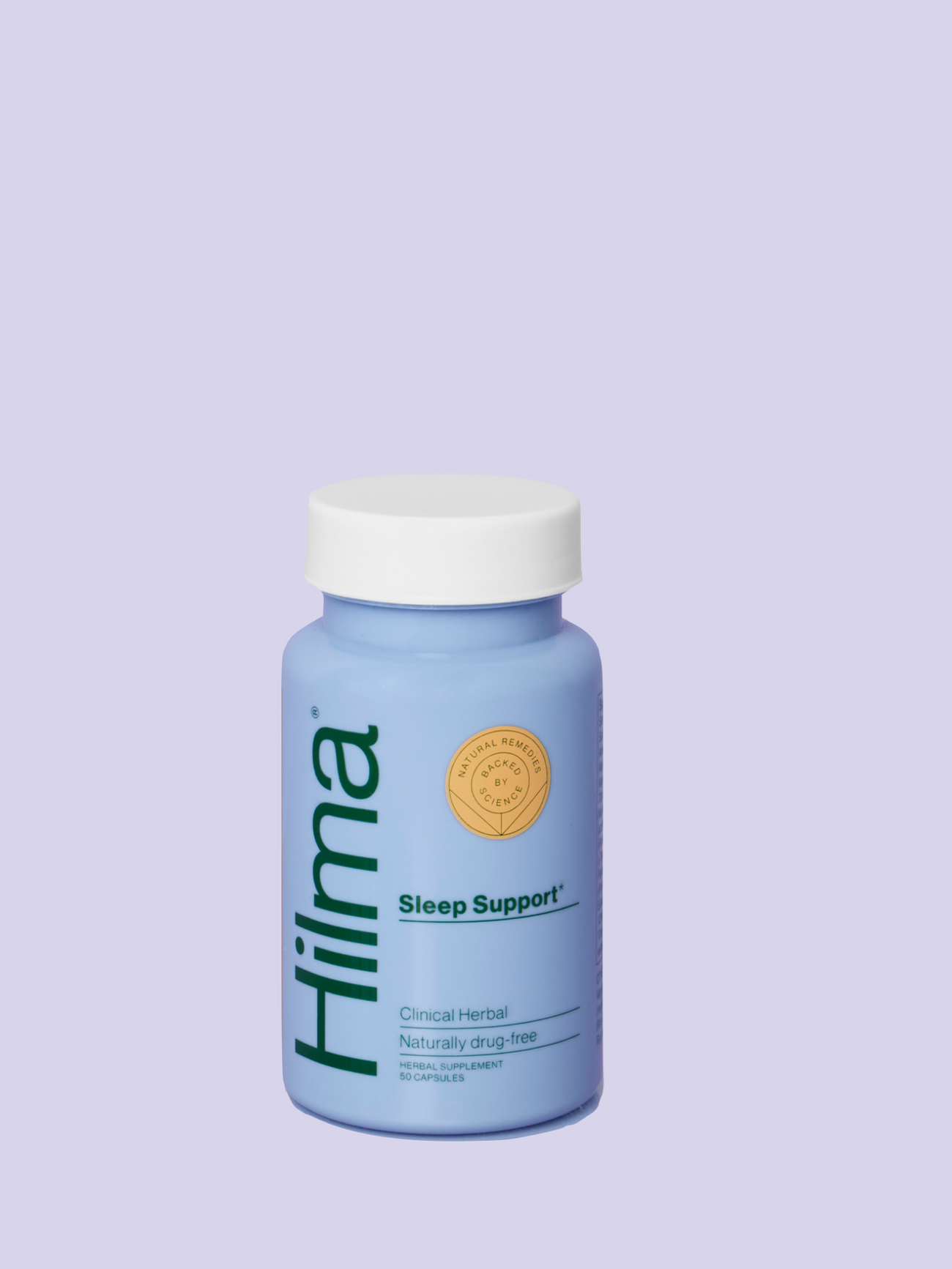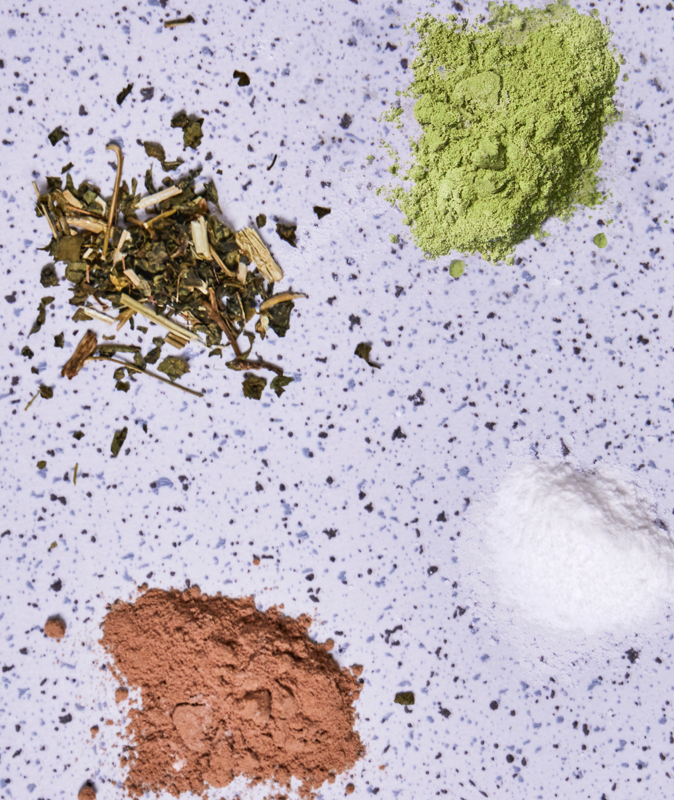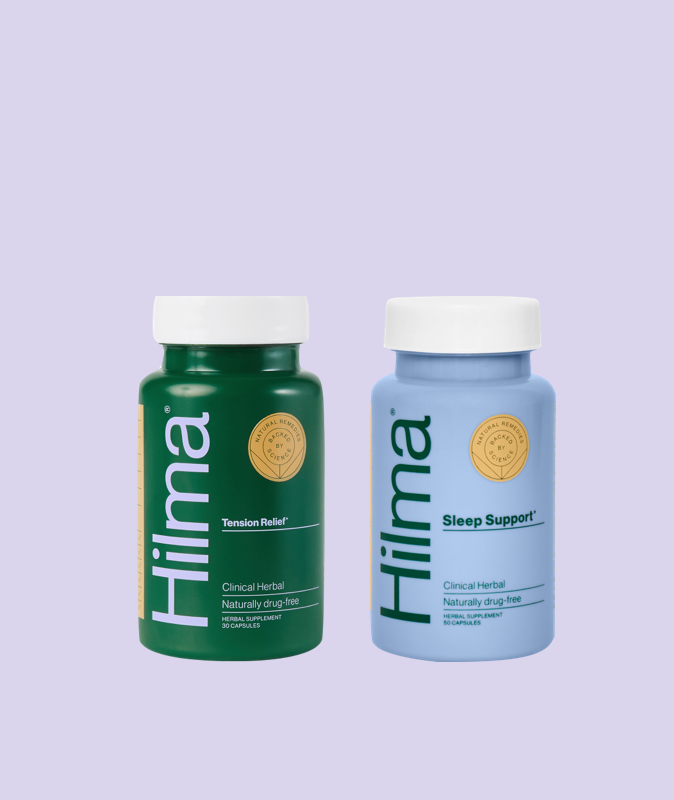
When looking for sleep aids, it can be hard to know which herbs to turn to. But your search ends here! There are many well researched natural ingredients and minerals out there that can provide the healthy, refreshing night’s sleep you dream about.
Here’s a closer look at four powerful herbs that support sleep–naturally:
Passionflower
Passionflower is a traditional sleep remedy that has been proven to enhance sleep quality and prolong sleep time. Indigenous peoples of the Americas were among the first to use the herb for its calming effects. Most passionflowers are native to Central and South America. And it later gained popularity in Europe during the 16th century as a treatment for anxiety, restlessness, and insomnia. It is still widely used today for its ability to enhance sleep quality and prolong sleep duration.
How it works
The herb is thought to work via the modulation of the body’s GABA(gamma-aminobutyric acid) system. GABA is an inhibitory neurotransmitter that decreases nervous system activity, promoting relaxation. When GABA levels are high, the body transitions into a state conducive to sleep. Passionflower enhances GABA production and inhibits its breakdown, making it easier to fall asleep and stay asleep.
Additionally, chrysin, a powerful flavonoid found in passionflower, plays a critical role in regulating the sleep-wake cycle by influencing the body’s circadian rhythm. Chrysin’s sedative qualities help calm overactive thoughts and allow the body to enter a restful state more naturally.
Scientific Support
Modern studies have demonstrated passionflower’s efficacy in improving sleep. One randomized clinical trial found that participants who consumed passionflower tea for one week reported significantly better sleep quality compared to those in the placebo group. Another study showed that passionflower extract improved sleep latency—the time it takes to fall asleep—while reducing symptoms of anxiety, a common contributor to sleep disturbances.
Reishi Mushroom
Reishi is a tonic, calming mushroom. Reishi mushroom (Ganoderma lucidum) has been revered for centuries in Traditional Chinese Medicine (TCM) as the “Mushroom of Immortality.” Known for its ability to balance the body, Reishi is categorized as an adaptogen—a natural substance that helps the body adapt to stress and restore equilibrium. Its calming properties make it particularly useful for improving sleep, especially when stress or anxiety is a factor. Research has demonstrated the mushroom’s ability to prolong sleep time, as well as reduce anxiety, which is why it is particularly effective at improving anxiety-related sleep disturbances.
How It Works
Reishi’s effectiveness as a sleep aid comes from its ability to lower cortisol levels and reduce overactivity in the central nervous system. Chronic stress can trigger the release of cortisol, the body’s primary stress hormone, disrupting the sleep cycle and preventing deep, restorative rest. Reishi helps regulate cortisol production, allowing the body to transition more easily into sleep.
Reishi also contains triterpenoids and polysaccharides, compounds that promote relaxation and support the immune system. Triterpenoids have been shown to act on serotonin receptors, helping stabilize mood and reduce anxiety—two major contributors to sleep disturbances.
Scientific Support
Recent studies have demonstrated Reishi’s ability to improve sleep quality. One study in animal models found that Reishi extract significantly prolonged sleep time and improved non-REM sleep, the most restorative phase of the sleep cycle. In humans, Reishi supplementation has been associated with reduced symptoms of insomnia and anxiety.
L-Theanine
L-Theanine is an amino acid most often found in green tea, but don’t worry--it’s totally separate from the caffeine. L-theanine i’s what gives green tea its renowned calming effects without the jitteriness often associated with caffeine. L-Theanine promotes relaxation and reduces stress, making it an ideal supplement for improving sleep quality.
How It Works
L-Theanine works by modulating the brain’s alpha waves. Alpha waves are associated with a relaxed but alert state, similar to the mental state achieved during meditation. By increasing alpha wave activity, L-Theanine induces a sense of calm and reduces overactive brain activity that can interfere with sleep.
L-Theanine also inhibits excitatory neurotransmitters like glutamate, which are responsible for activating the sympathetic nervous system (the fight-or-flight response). By reducing this excitation, L-Theanine calms the body and prepares it for rest.
Scientific Support
A study published in the Journal of Clinical Psychiatry found that adults who supplemented with 200 mg of L-Theanine daily experienced improved sleep efficiency, reduced sleep latency, and fewer nighttime awakenings.
Another clinical trial demonstrated that L-Theanine supplementation significantly reduced symptoms of anxiety and improved overall sleep quality in individuals with mild sleep disturbances.
Magnesium
Magnesium is an essential mineral that the human body cannot function without. It is commonly consumed via dark leafy greens, seeds (pumpkin, sunflower), and seaweeds. Despite its wide variety of sources over 50% of Americans are deficient in magnesium due to the refinement of grains and removal of magnesium from drinking water as early as the 20th century. A common sign of magnesium deficiency is biorhythm dysregulation (i.e., insomnia), so adding magnesium back into the diet has been shown to promote sleep. Similar to passionflower, magnesium has also been shown to have a regulating effect on the circadian rhythm.
Magnesium and Sleep
Magnesium plays a critical role in regulating the body’s circadian rhythm, the internal clock that governs the sleep-wake cycle. A magnesium deficiency can disrupt this rhythm, leading to insomnia and poor sleep quality.
Magnesium promotes sleep through several mechanisms:
-
GABA Activation: Similar to passionflower, magnesium enhances GABA activity, calming the nervous system and preparing the body for sleep.
-
Melatonin Production: Magnesium is essential for the synthesis of melatonin, the hormone that signals the body to sleep.
-
Muscle Relaxation: Magnesium helps reduce muscle tension and cramps, which can interfere with restful sleep.
Scientific Support
A clinical trial published in the Journal of Research in Medical Sciences found that magnesium supplementation improved sleep efficiency, sleep time, and melatonin levels in older adults with insomnia. Another study showed that magnesium reduced symptoms of restless leg syndrome, a condition that often disrupts sleep.
Valerian
Valerian, also known as Valeriana officinalis, is a well-known herb used primarily for its calming and sedative effects. It’s often used to help manage insomnia, anxiety, and stress. Valerian works by promoting relaxation and is frequently taken as a sleep aid.
How It Works
Valerian works by increasing the activity of gamma-aminobutyric acid (GABA) in the brain. GABA is a neurotransmitter that inhibits neural activity, helping to calm the nervous system. By enhancing GABA function, valerian helps reduce the feelings of restlessness and anxiety, leading to improved sleep and relaxation.
Scientific Support
A study published in the Journal of Psychopharmacology found that valerian root extract significantly reduced the time it took to fall asleep and improved the quality of sleep in patients with insomnia. Others have found valerian to be effective in reducing anxiety and improving sleep in people with generalized anxiety disorder.
Scullcap
Skullcap, Scutellaria lateriflora, is a herb commonly used to treat stress, anxiety, and insomnia. It is known for its calming effects, helping to reduce tension in both the mind and body. Skullcap is often used as a gentle sedative and relaxant.
How It Works
Skullcap works by modulating GABA receptors, similar to valerian. By enhancing GABA activity, it helps to quiet overactive brain activity, reduce stress, and promote a sense of calm. Skullcap also has anti-inflammatory effects, which may contribute to its ability to alleviate nervous tension and soothe the nervous system.
Scientific Support
Research published in Phytotherapy Research demonstrated that skullcap extract helped reduce anxiety symptoms and was found to have mild sedative effects without causing significant sedation or drowsiness the following day.
Herbs and supplements like passionflower, Reishi mushroom, and valerian with L-Theanine and magnesium offer natural, science-backed solutions for improving sleep quality. Each of these remedies works uniquely to address common sleep disruptors, from stress and anxiety to muscle tension and circadian rhythm imbalances.
When incorporating these supplements into your routine, consistency is key. Start with one, monitor, and consult with a healthcare professional for personalized guidance.
Note: This information is for educational purposes only, and should not be taken as medical advice. Please consult your physician before treating any disorder.
Sources
-
A double-blind, placebo-controlled investigation of the effects of Passiflora incarnata (passionflower) herbal tea on subjective sleep quality. Ngan A, Conduit R. Phytother Res. 2011 Aug;25(8):1153-9. doi: 10.1002/ptr.3400. Epub 2011 Feb 3. PMID: 21294203.
-
Effects of Passiflora incarnata Linnaeus on polysomnographic sleep parameters in subjects with insomnia disorder: a double-blind randomized placebo-controlled study. Lee, Jeewon & Jung, Han-Young & Lee, Soyoung & Choi, Ji & Kim, Shin-Gyeom. (2019). International Clinical Psychopharmacology. 35. 1. 10.1097/YIC.0000000000000291.
-
Daily magnesium fluxes regulate cellular timekeeping and energy balance. Feeney KA, Hansen LL, Putker M, Olivares-Yañez C, Day J, Eades LJ, Larrondo LF, Hoyle NP, O'Neill JS, van Ooijen G. Nature. 2016 Apr 21;532(7599):375-9. Doi: 10.1038/nature17407. Epub 2016 Apr 13. PMID: 27074515; PMCID: PMC4886825.
-
Extract of Ganoderma lucidum prolongs sleep time in rats. Cui XY, Cui SY, Zhang J,Wang ZJ, Yu B, Sheng ZF, Zhang XQ, Zhang YH. J Ethnopharmacol. 2012 Feb 15;139(3):796-800. doi: 10.1016/j.jep.2011.12.020. Epub 2011 Dec 21. PMID: 22207209.
-
Effects of L-Theanine Administration on Stress-Related Symptoms and Cognitive Functions in Healthy Adults: A Randomized Controlled Trial. Hidese S, Ogawa S, Ota M, et al. Nutrients. 2019;11(10):2362. Published 2019 Oct 3. doi:10.3390/nu11102362
-
Understanding the Stress Response.” Publishing, Harvard Health. Harvard Health, www.health.harvard.edu/staying-healthy/understanding-the-stress-response.
-
Magnesium in Prevention and Therapy. Gröber U, Schmidt J, Kisters K. Nutrients. 2015 Sep 23;7(9):8199-226. doi: 10.3390/nu7095388. PMID: 26404370; PMCID: PMC4586582.
-
Herbs & Natural Supplements: An Evidence-Based Guide, by Lesley Braun et al., 4th ed., vol. 2, Elsevier, 2015, pp. 679–679.



